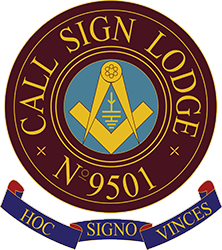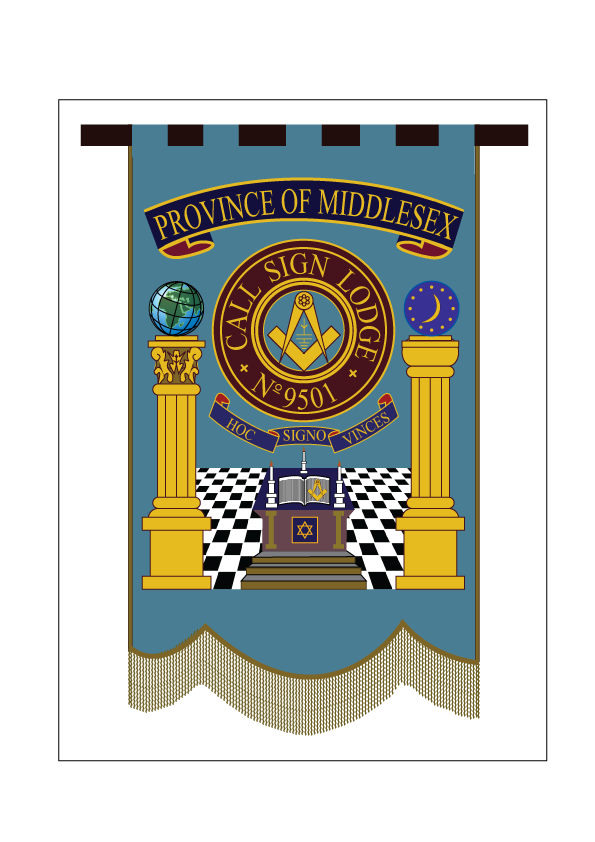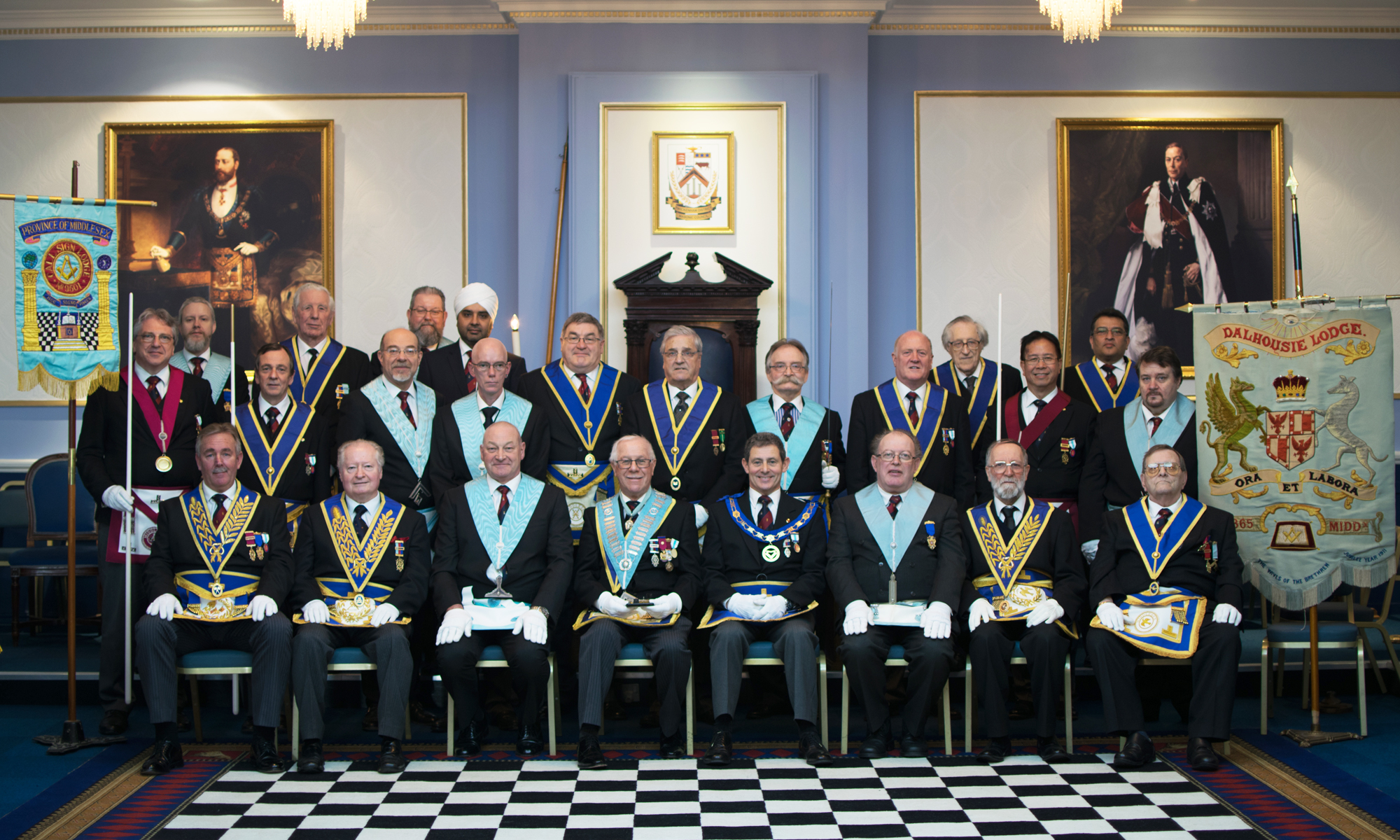During the latter part of 1992, a group of freemasons consisting mainly of Radio Amateurs brought together by W.Bro. Royston Williams, all sat down to consider the starting of a Middlesex Lodge formed mainly of “radio hams”. These were freemasons who could no longer attend a similar Lodge that was and still is currently meeting at Great Queen Street, this being due either to costs or travelling difficulties.

A Consecration Committee was formed which was to include the Consecrating Secretary W.Bro. Graham Hooper, the Consecrating Treasurer W.Bro. David Sparks, plus 12 other Brethren. In due course and driven by the energy of W.Bro. Hooper, the arrangements were made for the Lodge to be consecrated on 19th June 1993 at “The Rose Bowl,” Twickenham Stadium. Thus came the birth of The Call Sign Lodge No. 9501
The Consecrating Team was led by the then Pro Prov.Grand Master, the R.W.Bro. Gordon Bourne, and was attended by approximately 250 Brethren, the majority of whom stayed to dine. The Primus Master was W.Bro. Jack Simmonds.
W.Bro. Graham Hooper continued to guide the Lodge through its infancy until June 1994 when W.Bro. Roy Williams was both elected and installed as the new Lodge Secretary. Sadly W.Bro. Royston was not to take any action in his new role, passing the “The Grand Lodge Above,” just prior to his first meeting in the September of the same year. W.Bro. Graham again resumed the office and retained it until the election of W.Bro. Chas Foulsham to the office in 2004.

The splendid Lodge banner was designed, commissioned and presented to the Lodge by W.Bro. Graham Hooper. This culminated in a wonderful Banner Dedication Service conducted by the PPro Provincial Grand Master, the R.W. Bro. David Bonner, at our Installation Meeting held in June 1994. Sadly, W.Bro. Graham Hooper passed to The Grand Lodge Above on 3rd August, 2010. He will be very much missed by all those who knew him and knew of him, as well as freemasonry in general.
At the time of the forming of the Lodge, the Provincial Grand Master, H.R.H. Prince Michael of Kent, expressed the view that perhaps we could consider it being a “daylight” Lodge. This is the term used for Lodges that meet in the mornings with a lunchtime Festive Board.
The benefits of a “daylight” Lodge are two-fold; firstly it enables the participation of Brethren who may otherwise not enter the craft due to both work and family commitments. Secondly, it enables some of our elder Brethren to continue to enjoy their masonry, but without some of the problems associated with being out till late in the evening.
At Call Sign Lodge, we have members who are now proud to refer to the Lodge as their “Mother Lodge,” and in September 2009 were also proud to welcome the Lodge’s first “lewis.” This was Bro. Peter Foulsham, son of the then Master.
Over the years the Lodge has shared a special affinity with Dalhousie Lodge No 865, one which continues to improve the quality of our ritual by allowing our members to participate in their Lodge of Instruction. For this we will be continually grateful. They also support us by attending many of our meetings, and this is reciprocated by those members of Call Sign Lodge who attend their meetings.
The Lodge regularly promotes the benefits of joining Holy Royal Arch, and our members are encouraged to join the Dalhousies Chapter No 865, also meeting at Cole Court.
The very definitive logo of the Lodge will be full appreciated by “radio hams,” and could be said to represent “the good earth” from which all freemasons are derived; “the antenna,” the implement or working tool that joins us together as one. The radio “signals” from the outside world remind us of our Lodge motto, “audi, vici, tace,” meaning “listen, observe, and be silent.” This is a good motto for a wise mason as the latter, “listen,” can sometimes prove very difficult!
Whilst the original concept of the Lodge was to allow “radio hams” to meet with their counterparts in peace and harmony, it also welcomes initiates and joining members from all walks of life. This particularly applies to those who find it difficult to practise their freemasonry during the weekday evenings.

